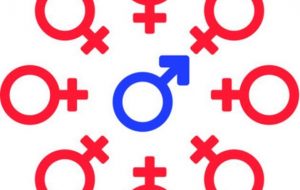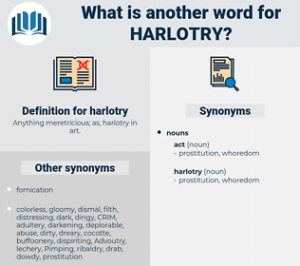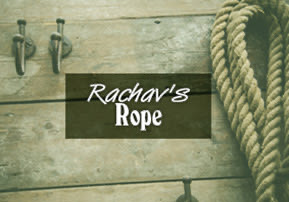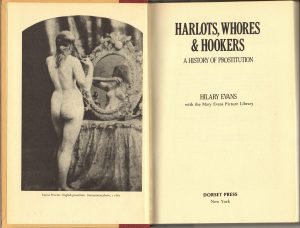Another exciting week among friends who have made, and are making simchas; let’s shout them out.
 This coming Sunday the Oisvorfer and eishes chayil are off to Lancaster, PA to participate -in person mamish- at the wedding of Ari Einhorn, he the givaldige and outstanding son of our dear friends -of many decades- Chani and Shmuel Einhorn. Ari will be marrying Ariella Weisbrod, she the beautiful daughter of Lisa and Sholom Meir Weisbord. A big mazel tov Ariella and Ari, to Chani & Schmele, to all the siblings and their families, and to the entire extended Einhorn and Weisbrod families. May Ariella and Ari merit to enjoy many decades of blissful marriage.
This coming Sunday the Oisvorfer and eishes chayil are off to Lancaster, PA to participate -in person mamish- at the wedding of Ari Einhorn, he the givaldige and outstanding son of our dear friends -of many decades- Chani and Shmuel Einhorn. Ari will be marrying Ariella Weisbrod, she the beautiful daughter of Lisa and Sholom Meir Weisbord. A big mazel tov Ariella and Ari, to Chani & Schmele, to all the siblings and their families, and to the entire extended Einhorn and Weisbrod families. May Ariella and Ari merit to enjoy many decades of blissful marriage.
And this coming shabbis, we will be joining our friends Barbara and Shimmy Schwartz at the aufruf of their amazing son Yonatan who will -this coming Monday- be marrying Danielle Chesir, she the beautiful daughter of Blimi and Benjamin Chesir. A special mazel to Yonatan and Danielle, to Shimmy and Barbara, to all siblings and their families, and a special mazel tov to the honored grandparents on both sides who have the merit to see their grandchildren under the marriage canopy.
Following the aufruf, we will be joining the Maels -as in Autumn and Bruce- to help them celebrate shabbis sheva brochis in honor of their children Sara and David Schwartzman who got married this past Sunday. Mazel tov again to Sara and David, to the entire Mael and Schwartzman families, and a special mazel tov shoutout to Bruce’s mom, Mrs. Joan Mael of Boston, longtime Oisvorf reader. Rumor has it that the Oisvorfer may be speaking.
Next Monday, we’re off to Englewood, New Jersey where we will be joining our dear friends Naomi and Howie Berg and to participate in the wedding of their beautiful daughter Elizabeth who will be marrying Josh Sasouness, he the son of Sophie and Baruch Sasouness. Mazel tov to Elizabeth and Josh, more next week.
———————————————————————————————————————
Among the 74 different mitzvis of every variety found in this week’s parsha of Ki Saytzei, a good number of them are related to sexual activity in one form or another. From permitted sex on the battlefield with a hot shiksa – seemingly looks play an important role for this permission- to being unhappily married, divorce, levirate marriage, virginity, tokens of virginity, and the lack thereof, Ki Saytzei is in a league of its own. No wonder this parsha is taught during the summer months when yeshiva is out; which rebbe could have gotten by these subject matters without shvitizng, blushing, and bumbling? Are they trained to gently and honestly explain why a soldier is entitled to battlefield sex? Are they equipped to answer questions –token or regular- with a straight face? This week we will take a shtikel look at harlotry, also covered in the parsha, ober let us begin here.
Back in 1636, when the Pilgrims of Plymouth Colony were at war with the Pequot Indians, they enacted a law that committed them to support soldiers disabled in defending the colony. According to most, this was the first instance of assisting those who chose to serve. Shoin and before we begin this non-Vaad issue, let’s absorb a few more factoids. During the Revolutionary War, the Continental Congress of 1776 encouraged enlistments by authorizing pensions for soldiers who were disabled. Later, individual states and even communities provided medical and hospital care to veterans. In 1811, the first domiciliary and medical facility for veterans was authorized by the federal government. In the later 1800s, federal veteran’s assistance was expanded to include benefits and pensions not only for veterans, but also for their widows and dependents. The list of advances in veteran benefits goes on, and even in our times, the VA manages large numbers of veteran’s programs funded by the government. Combined, these services and staff make VA the second largest Cabinet-level department in the U.S. government with an annual budget exceeding $100 billion dollars, that “b” for billions.
The bottom line: over the years, the United States, recognizing that it needed to field an army and to help with enlistment, decided to add certain benefits. These included medical, education, housing, low-interest loans and other things. In later years, additional benefits were added and eventually -in our days- those serving in any branch of the armed services – be they in army, marines or navy- have a whale of benefits coming their way. That’s all givaldig ober far from original. Were benefits offered earlier and or elsewhere? You bet! Because raboyseyee, way back in the year 2488 from creation, mamish weeks before the Yiddin were to enter the Promised Land and days before Moishe was to pass away, knowing avada how the Yiddin would be warring with the various inhabitants of the land to include the Kenanim, Chitim, Perizzites, Amorites, Girgashites and Yivucies, the RBSO in His magnificence chapped that benefits to those waging war was the magic required to get full enlistment. He knew that people would be loath to fight yet another war. Let’s recall they fought wars against Sichoin and Oig, killed Bilham and others in their way. Were they ready to enlist in yet another war, this one to conquer the land?
 In Ki Saytzei, the RBSO, mamish in a stroke of genius –avada all He does is genius- related to Moishe who then told the tired Yiddin about the greatest war benefit of all: a perquisite unlike any other, one fully sanctioned by the heylige Toirah, and one so kosher that even our sages of yore who found creative ways to make not kosher many things that were, found no place to hide or argue with the RBSO’s words or intentions. No Vaad required. And what was this enlistment war benefit? Girls and sex! Shoin, does one need more? Yes; you read it right here as you do weekly. The RBSO told the soldiers they were free to chap-areyn (enjoy) with any shiksa they found attractive -efsher the more beautiful the better- and that they could enjoy otherwise forbidden fruits, if you chap, which they could. And just like that, fielding an army went from a challenge to a breeze. Men could mistama -not fast enough- run down to their local recruiting office –mistama initially located in downtown Yirichoi, where they enlisted without conditions.
In Ki Saytzei, the RBSO, mamish in a stroke of genius –avada all He does is genius- related to Moishe who then told the tired Yiddin about the greatest war benefit of all: a perquisite unlike any other, one fully sanctioned by the heylige Toirah, and one so kosher that even our sages of yore who found creative ways to make not kosher many things that were, found no place to hide or argue with the RBSO’s words or intentions. No Vaad required. And what was this enlistment war benefit? Girls and sex! Shoin, does one need more? Yes; you read it right here as you do weekly. The RBSO told the soldiers they were free to chap-areyn (enjoy) with any shiksa they found attractive -efsher the more beautiful the better- and that they could enjoy otherwise forbidden fruits, if you chap, which they could. And just like that, fielding an army went from a challenge to a breeze. Men could mistama -not fast enough- run down to their local recruiting office –mistama initially located in downtown Yirichoi, where they enlisted without conditions.
Anyway, we have previously covered this subject and as much as we are tempted to repeat it by popular demand from readers, instead, please click here for full coverage of how the RBSO allowed soldiers -in heat- to cool down by chapping a beautiful shiksa on the battlefield. Why the RBSO was davka makpid (strict) about the girl’s physical beauty, ver veyst, ober who are we to argue with the RBSO? That didn’t however stop many an exegete from toiling over the RBSO’s instructions and from then deciding that His explicit permission was but an allowance for the solider to cool down after getting heated up by eyeing a hot shiksa on the battlefield. In other words: according to the sages- the RBSO knew that soldiers were carrying loaded guns, if you chap, and needed to release and shoot them. They were going to release their weaponry with or without permission and in order to avoid punishing tens of thousands of sinners, He instead allowed it all to take place. In other words: the heylige Toirah ceded to man’s base desires. So the rabbis teach us; recognizing the strength of the yetzer horo (evil inclination), and knowing that few men can withstand his power, permission was given. Shoin. Is that all it takes for the RBSO to say yes? Is that what the heylige Toirah tells us? Not! Not even close! Ober, that wasn’t good enough for our rabbis who decided that RBSO’s words required further elucidation and that what He meant is different than what’s written in plain loshoin koidesh in His heylige Toirah. The bottom line: war has its benefits.
Shoin, let’s talk prostitution and harlotry. Is there a difference? What does the heylige Toirah tell us about harlotry? Is it permitted? Were any Toirah-named characters efsher involved in such behavior? Were they punished? Rewarded? Let’s begin by reading a posik from this week’s parsha which in 23:18 tells us azoy: “There shall be no whore of the daughters of Israel, nor a male prostitute of the sons of Israel.” And in Hebrew:
לֹא תִהְיֶה קְדֵשָׁה מִבְּנוֹת יִשְׂרָאֵל וְלֹא יִהְיֶה קָדֵשׁ מִבְּנֵי יִשְׂרָאֵל: Note the word “kedeisha “in Hebrew and how it’s translated as “whore” into English.
 Ober, what exactly is a kedeisha as found in the posik above? Let us see what a few had to say. Says Rabaynu Art Scroll in English azoy: “there shall not be a promiscuous woman among the daughters of Israel, and there shall not be a promiscuous man among the sons of Israel. Shoin, clear enough? Not according to Rashi who further elucidates and tells us azoy: kedeishas are i.e. women, men who make themselves available constantly for sexual activity. Got that? Why the RBSO chose to give these instructions ver veyst; do you know of any Jewish woman who is “always” available? Veyter! On the other hand, efsher pshat was azoy: they are not readily available for free, or to their husbands, ober for pay, efsher yes? Then again, the same restriction is placed on men and efsher that’s why the RambaN offers this pshat: the above commandment is directed at the courts. The courts are instructed not to permit such people -those always available- to parade themselves in public to indicate their availability. No loitering! Moreover, the courts are instructed to prevent the establishment of, and maintenance of, places (whore houses for lack of a better descriptor) where such activity will take place. Not the Oisvorfer’s words; merely -for the most part- quoting Rabaynu Art Scroll who translates Rashi and the RambaN.
Ober, what exactly is a kedeisha as found in the posik above? Let us see what a few had to say. Says Rabaynu Art Scroll in English azoy: “there shall not be a promiscuous woman among the daughters of Israel, and there shall not be a promiscuous man among the sons of Israel. Shoin, clear enough? Not according to Rashi who further elucidates and tells us azoy: kedeishas are i.e. women, men who make themselves available constantly for sexual activity. Got that? Why the RBSO chose to give these instructions ver veyst; do you know of any Jewish woman who is “always” available? Veyter! On the other hand, efsher pshat was azoy: they are not readily available for free, or to their husbands, ober for pay, efsher yes? Then again, the same restriction is placed on men and efsher that’s why the RambaN offers this pshat: the above commandment is directed at the courts. The courts are instructed not to permit such people -those always available- to parade themselves in public to indicate their availability. No loitering! Moreover, the courts are instructed to prevent the establishment of, and maintenance of, places (whore houses for lack of a better descriptor) where such activity will take place. Not the Oisvorfer’s words; merely -for the most part- quoting Rabaynu Art Scroll who translates Rashi and the RambaN.
Can the word “kedeisha” mean anything else? Does the heylige Toirah always use that word kedeisha to mean promiscuity, always available for sexual relations, or by definition, efsher a prostitute? Who else was referred to as a kedeisha and what happened to that person or persons? Let us hearken back to Sefer Bereishis and revisit a beautiful person by the name of Tamar. Avada you recall that she dressed up as a harlot -exactly what the differences are between a harlot, and a prostitute, ver veyst, but efsher harlot is loshoin noki- (a more elegant way of saying whore). In any event, she had a roadside encounter (sex) with Yehudah. Without repeating every salacious detail of the encounter, how it took place, what tricks she employed and her methods, the bottom line of the encounter was that she became trugidik (pregnant), and gave birth to twins, one of whom became the elter-elter zeyda (many times great grandfather of Dovid Hamelech, himself no stranger to various sexual encounters, some of them questionable at best. Bottom line: Tamar was seemingly rewarded for playing the part of harlot.
 In 38:21 of Sefer Bereishis we read azoy: He (Yehudah) inquired of the people of her (Tamar’s) place, “where is the prostitute, the one at the crossroads by the road?” And they said “there was no prostitute here.” Note that the question of her whereabouts, and the answer given, both employ the word “kedeisha.” In other words, the word kedeisha in the Yehuda/ Tamar myseh is meant to refer to a whore, say it’s not so. Bottom line: seemingly the harlot and the whore are the same. Shoin, since we mentioned Tamar who but dressed up, or efsher down, to play harlot, we should avada give a shout out to another great woman who –according to most- was mamish a zoinah, a whore; its’ what she did for living. Let’s go back to the year 2488, Moishe has passed and Yihoishua is now in charge. He will send spies to check the strength of the Land’s inhabitants. “Go, reconnoiter the region of Yirichoi (Jericho).” So they set out, and they came to the house of a harlot named Rochov and lodged there. It specifically states several times in Sefer Yehoshua (chapters 2 and 6) that Rochov was a Harlot ” וְאֶת רָחָב הַזּוֹנָה”. Of course, not everyone agrees and others suggest that she was but an innkeeper and someone who sold mezonos (wheat). According to one exegete, a zoinah is like a seller of baked goods in that she sells herself to all. Shoin, perhaps she wasn’t a harlot but only a baker? Es ken zeyn (plausible) and mistama she did often check for yeast, if you chap, ober how does that conflate with various medroshim and even the heylige Gemora which tells us otherwise? Was she, or wasn’t she a harlot? Nu, that depends on whose pshat talks to you. Says the Radak, she was indeed a prostitute. Says Targum Yoinoson: she was an innkeeper and that “zoina” in this context, relates to the word “mazon” for bread. Says the Abarbanel: the two explanations aren’t mutually exclusive. She was taka a prostitute and that she had a second profession; she played the role of an innkeeper. One thing is zicher: enterprising she was. Says the heylige Gemora (Zevachim 116b), azoy: she was a harlot! [A]s a master said, there was no prince or ruler who had not possessed Rochov the harlot. It was said: She was ten years old when the Yiddin departed from Egypt, and she played the harlot the whole of the forty years spent by the Yiddin in the wilderness. At the age of fifty she became a ba’las tshuva (seemingly it’s never too late), a proselyte. Moreover, our sages sing the praises of Rochov, they talk about her beauty and wisdom. She acted wisely when she concealed the spies in her house, thereby saving her entire family from the ravages of war. She converted and was married to Yihoishua (Joshua), and her descendants included renowned kohanim and prophets. Yishoishua, Moishe’s G-d chosen successor, and leader of the Yiddin married a former harlot? What’s pshat? Was that the best he could do? Says the medirsh: Rochov was among the four most beautiful women the world has ever known. And the other three? Soro, Avigayil, and Esther. Anyone who mentioned her name, saying, “Rochov, Rochov,” immediately lusted after her. And says the heylige Gemora so astoundingly azoy: Rebi Yitzchok said: Anyone who says: Rochov Rochov, immediately experiences a seminal emission, due to the arousal of desire caused by Rochov’s great beauty. Rav Nacḥman said to him: I say Rahab and it does not affect me. Rabbi Yitzchok said to Rav Nacḥman: When I said this, I was specifically referring to a man who knew her and to one who recognized her. With regard to anyone who had met Rochov in person, the mere mention of her name would arouse his lust. Where can you read this gishmake story? Check it out in the heylige Gemora (Tannis 5b). Want more on Rochov? Our sages tell that Rochov was ten years old at the time of the Exodus from Egypt. She engaged in prostitution during the forty years of the Yiddin’s wanderings in the midbar, until the age of fifty.
In 38:21 of Sefer Bereishis we read azoy: He (Yehudah) inquired of the people of her (Tamar’s) place, “where is the prostitute, the one at the crossroads by the road?” And they said “there was no prostitute here.” Note that the question of her whereabouts, and the answer given, both employ the word “kedeisha.” In other words, the word kedeisha in the Yehuda/ Tamar myseh is meant to refer to a whore, say it’s not so. Bottom line: seemingly the harlot and the whore are the same. Shoin, since we mentioned Tamar who but dressed up, or efsher down, to play harlot, we should avada give a shout out to another great woman who –according to most- was mamish a zoinah, a whore; its’ what she did for living. Let’s go back to the year 2488, Moishe has passed and Yihoishua is now in charge. He will send spies to check the strength of the Land’s inhabitants. “Go, reconnoiter the region of Yirichoi (Jericho).” So they set out, and they came to the house of a harlot named Rochov and lodged there. It specifically states several times in Sefer Yehoshua (chapters 2 and 6) that Rochov was a Harlot ” וְאֶת רָחָב הַזּוֹנָה”. Of course, not everyone agrees and others suggest that she was but an innkeeper and someone who sold mezonos (wheat). According to one exegete, a zoinah is like a seller of baked goods in that she sells herself to all. Shoin, perhaps she wasn’t a harlot but only a baker? Es ken zeyn (plausible) and mistama she did often check for yeast, if you chap, ober how does that conflate with various medroshim and even the heylige Gemora which tells us otherwise? Was she, or wasn’t she a harlot? Nu, that depends on whose pshat talks to you. Says the Radak, she was indeed a prostitute. Says Targum Yoinoson: she was an innkeeper and that “zoina” in this context, relates to the word “mazon” for bread. Says the Abarbanel: the two explanations aren’t mutually exclusive. She was taka a prostitute and that she had a second profession; she played the role of an innkeeper. One thing is zicher: enterprising she was. Says the heylige Gemora (Zevachim 116b), azoy: she was a harlot! [A]s a master said, there was no prince or ruler who had not possessed Rochov the harlot. It was said: She was ten years old when the Yiddin departed from Egypt, and she played the harlot the whole of the forty years spent by the Yiddin in the wilderness. At the age of fifty she became a ba’las tshuva (seemingly it’s never too late), a proselyte. Moreover, our sages sing the praises of Rochov, they talk about her beauty and wisdom. She acted wisely when she concealed the spies in her house, thereby saving her entire family from the ravages of war. She converted and was married to Yihoishua (Joshua), and her descendants included renowned kohanim and prophets. Yishoishua, Moishe’s G-d chosen successor, and leader of the Yiddin married a former harlot? What’s pshat? Was that the best he could do? Says the medirsh: Rochov was among the four most beautiful women the world has ever known. And the other three? Soro, Avigayil, and Esther. Anyone who mentioned her name, saying, “Rochov, Rochov,” immediately lusted after her. And says the heylige Gemora so astoundingly azoy: Rebi Yitzchok said: Anyone who says: Rochov Rochov, immediately experiences a seminal emission, due to the arousal of desire caused by Rochov’s great beauty. Rav Nacḥman said to him: I say Rahab and it does not affect me. Rabbi Yitzchok said to Rav Nacḥman: When I said this, I was specifically referring to a man who knew her and to one who recognized her. With regard to anyone who had met Rochov in person, the mere mention of her name would arouse his lust. Where can you read this gishmake story? Check it out in the heylige Gemora (Tannis 5b). Want more on Rochov? Our sages tell that Rochov was ten years old at the time of the Exodus from Egypt. She engaged in prostitution during the forty years of the Yiddin’s wanderings in the midbar, until the age of fifty.
The bottom line: despite her past, she chapped Yehoshua and the RBSO seemingly wasn’t bothered by her checkered past. That’s avada good news for most of you. On the other hand, Rochov was not Jewish while in the zoina gisheft. Moreover, harlotry –even as commanded in our parsha- was not, and is not forbidden for shiksa’s, at least not in the heylige Toirah.
Shoin, let’s get back to the posik in our parsha which I remind you tells us “There shall be no whore of the daughters of Israel, nor a male prostitute of the sons of Israel.” Rashi told us a “kedeisha” is a woman who is mufkeres, mekudeshes u-mezumenes li-zenus” – a woman who is ever-ready and engages in promiscuous sexual behavior. Ober, says targum Unkilis the words mean azoy: “A woman of the daughter of Israel shall not become the wife of a slave and no man of Israel shall marry bondwoman, a slave. Ober what taka is the message? What’s allowed and what’s not? What is the bottom line? What does the RBSO want and what is He telling us? Was harlotry ever permitted? Was there a time when stam-azoy intercourse prior to, or outside the marriage was kosher? And what exactly is “a prostitute?”
Says the Rambam (Hilchos Ishus 1:1, 4) azoy: Before the heylige Toirah was given, when a man would meet a woman in the marketplace and he and she decided to marry, he would bring her home, conduct relations in private and thus make her his wife. Once the Toirah was given, the Yiddin were commanded that when a man desires to marry a woman, he must acquire her as a wife in the presence of witnesses. [Only] after this, does she become his wife. As it is said: “When a man takes a wife and [then] has relations with her…” Before the Toirah was given, when a man would meet a woman in the marketplace, and he and she desired, he could give her payment, engage in relations with her wherever they desired, and then depart. Such a woman is referred to as a prostitute (kedeishah). When the Toirah was given, [relations with] a prostitute became forbidden, as it says: “There shall not be a prostitute among the daughters of Israel.” Therefore, a person who has relations with a woman for the sake of zenus without kiddushin receives lashes as prescribed by the Toirah, because he had relations with a kedeishah. So happens that a number of those visiting prostitutes pay extra for lashes! Veyter. Ober, what taka is a prostitute? Some point to the verse, “Do not profane your daughter, to make her a harlot, lest the land fall into harlotry, and the land become full of lewdness.” Says the Sifra (Kedoshim 3:7)., “Do not profane your daughter to make her a harlot” … [This includes] one who gives his unmarried daughter to another man not for the purpose of marriage, and so too a woman who gives herself to a man not for the purpose of marriage. Shoin.
The bottom lines: from reading the heylige Toirah and the Novee, we avada know that there were characters and Jewish kings -all quite famous- who kept “concubines.” Was that kosher? What is a pilegesh? Is sleeping with one kosher while sleeping with a harlot not so? Let us recall that we find the term pilegesh numerous times in Tanach, always referring not to a temporary arrangement, but rather to a wife of sorts. By way of example, Ketura, is described as Avrohom’s pilegesh (Bereishis 25:6). Earlier, the Toirah states that Avrohom “took a wife (isha), and her name was Ketura. Let’s also shoutout Bilhah, the maidservant of Yaakov who bore two of Yaakov’s children. She is described as a pilegesh (ibid. 35:22). Then again, these relationships took place prior to Revelation. Moreover, these relationships did not prevent them from becoming our forefathers; seemingly the RBSO did not mind. And, let us not forget Dovid Ha-Melech’s relationship with his concubines, Shaul’s relationship with his pilegesh, and the list goes on. Were our kings bedding harlots, prostitutes? Seemingly they too were more in the habit of having relationships with what we call “pilagshim,’ efsher a less derogatory term for someone chapping outside the marriage, but seemingly not as giferlich as bedding a harlot. What’s the difference between a pilegesh and a harlot? All that for another day, but the good news is azoy: our sages wax long and fancy and split hairs to lessen the blow, if you chap, when one beds a pilegesh vs a prostitute. How all that works, ver veyst? There’s a lot of discussion as to what exactly a “concubine” means, and whether this was an option only for kings (or chieftains or the like). The final bottom line for today is azoy: it’s avada good to be the king! For all others (In the orthodox velt (world), if chapped with a harlot, avada you can explain -or try to- that you were but experimenting with a pilegesh by following the ways of our forefathers, and famous kings.
A gittin Shabbis-
The Heylige Oisvorfer Ruv
Yitz Grossman

